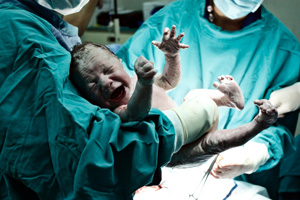
Do Antidepressants Actually Pose Significant Hazards for Pregnant Women?
Several new studies have suggested that expecting mothers should be wary of antidepressants, as they may pose serious risks of birth defects. For example, an article published in the New York Times emphasized the fact that while women often try their hardest to give their babies a healthy start in life, many women do not take proper precautions when it comes to certain antidepressants. Indeed, the article articulated the findings of several new studies that link prenatal exposure to popular antidepressants like Prozac, Celexa, and Zoloft to “birth defects, complications after birth, and even developmental delays and autism.”
According to a different recent article in the New York Times, reports about these findings have been considered alarmist by some in the medical community. Indeed, some doctors have suggested that the evidence about birth defects and antidepressants is inconclusive. For example, Brittany Raffa, a physician from Nashville, emphasized that many women on these medications suffer from depression and “use the lowest dose possible” to avoid injuring their babies. To be sure, Dr. Margaret Spinelli, who serves as the director of the Maternal Mental Health Program at Columbia University, argued that pregnant women may suffer other serious injuries if they abruptly discontinue use of their antidepressants.
Although there are some experts in reproductive psychology that question whether pregnant women should actually discontinue use of antidepressants while they are carrying a child, other obstetricians and researchers have significant concerns about the ultimate results of using these drugs during pregnancy.
What kinds of specific injuries have been linked to antidepressant use? An April 2014 study from Johns Hopkins University suggested that “boys with autism were nearly three times more likely to have been exposed to S.S.R.I.s before birth than typically developing boys.” SSRIs, or drugs that block the reuptake of serotonin, are a common type of antidepressant. Another study out of Harvard “linked prenatal exposure to nearly twice the risk for attention deficit hyperactivity disorder among children.”
Antidepressants and Pregnancy: Facts and Figures
What are SSRIs and how do they work? SSRIs, according to the Mayo Clinic, are “selective serotonin reuptake inhibitors,” and they are the most commonly prescribed antidepressants. They are used to treat symptoms of depression that range from moderate to severe. Most physicians consider them “relatively safe,” as they have been thought to cause fewer side effects than other types of antidepressants.
How do they work? These drugs ease the symptoms of depression by changing the balance of serotonin in the brain. Serotonin is a type of neurotransmitter. By blocking serotonin reuptake, SSRIS “help brain cells send and receive chemical messages, which in turn boosts mood.”
You may know SSRIs by their generic or brand names. Some of the most common ones (and those approved by the FDA) include the following:
- Citalopram (brand name Celexa)
- Escitalopram (brand name Lexapro)
- Fluoxetine (brand name Prozac)
- Paroxetine (brand names of Paxil or Pexeva)
- Sertraline (brand name Zoloft)
How many women take SSRIs? According to the U.S. Food and Drug Administration (FDA), nearly 14 percent of women may take antidepressants that fall into this category. The FDA has saliently linked one of those drugs, paroxetine (known by the name Paxil), to an increased risk of birth defects.
Given the fact that there have been several studies linking antidepressants to birth defects, it is important to discuss your potential case in the event that you took an SSRI and gave birth to a child with a serious birth defect. Contact an experienced birth injury lawyer today to determine your rights.



